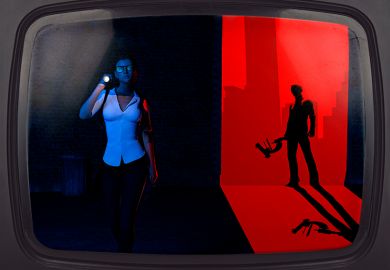A judge has accused a university professor of “diminishing the importance of the role of an expert witness” after he allegedly plagiarised others’ work in court and made assertions “without any basis in research or fact”.
Murat Yücel, a psychology professor and director of the Brain and Mental Health Laboratory at Monash University, was called as an expert witness in a consumer law case in the Australian federal court, which centred on whether a casino and a poker machine developer had misled consumers about their chances of winning money through the design of one of its machines.
Professor Yücel, who specialises in the long-term effects of heavy substance use on the brain and behaviour, prepared a report and gave oral evidence on behalf of the claimant, Shonica Guy, a former gambling addict.
But as part of the judgment, published this month, Justice Debbie Mortimer attacked the quality of the evidence given by Professor Yücel, stating that he was a “person without understanding of the role of an expert witness” and that he “had used and adopted the work of others without attribution”.
The judge concluded that the academic’s opinions were “irretrievably tainted by his flawed and irresponsible approach” and said that she had “disregarded them entirely”.
In particular, Justice Mortimer accused the academic of copying statements from Wikipedia without attribution.
“He...lifted statements expressed in other journal articles about other kinds of addictions and replaced words so as to make the statements read as if they related to gambling addiction when, in fact, they did not. He did this without attribution of the original source,” she said.
She added that there was “no rigour at all applied to his oral evidence, and when his primary sources were exposed as providing little if any support for his opinions, he was unable to make appropriate concessions, or any concessions”.
Justice Mortimer expressed particular concern over Professor Yücel’s statement that he saw his role as an expert witness as presenting opinions in an “information-sharing educational forum” and did not provide proper citations or attributions because the report was “not an academic publication”.
“Overwhelmingly, Professor Yücel’s attitude under cross-examination when these failings were exposed lacked any insight into the seriousness of his conduct, or to the important responsibilities attaching to the giving of expert evidence in a judicial setting. To the contrary Professor Yücel sought to diminish the importance of the role of an expert witness, in the ways I have already described,” she said.
Justice Mortimer also criticised another academic, Russell Deighton, for being “somewhat cautious” while giving evidence and for giving “confused, or unclear, answers”.
Dr Deighton, a senior lecturer in psychology and an expert in problem gambling at Melbourne’s Cairnmillar Institute, also gave evidence on behalf of the claimant, who lost the case.
The judgment raises wider questions about the training that academics receive on giving expert evidence in legal cases.
Professor Yücel told Times Higher Education that he had “an obligation to the court and the parties in this matter to not make any public comments about my evidence or the case”.
Monash University also declined to comment.
Register to continue
Why register?
- Registration is free and only takes a moment
- Once registered, you can read 3 articles a month
- Sign up for our newsletter
Subscribe
Or subscribe for unlimited access to:
- Unlimited access to news, views, insights & reviews
- Digital editions
- Digital access to THE’s university and college rankings analysis
Already registered or a current subscriber?




